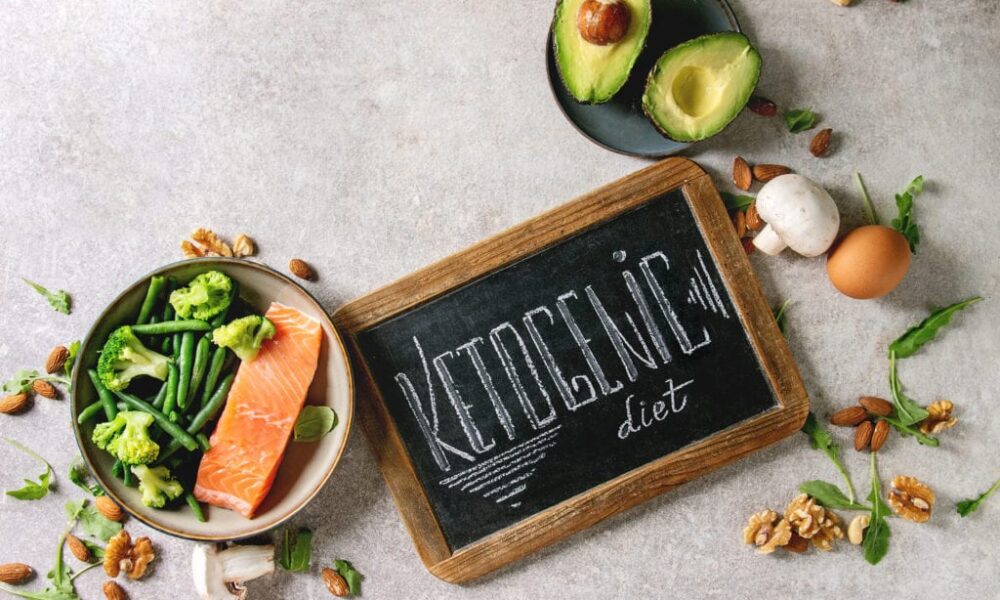The KETO diet explained
Share the love
The ketogenic diet (or keto diet, for short) is a low-carb, high-fat diet that can help you lose weight and has many health benefits, so does that mean eating a lot of fat really the best way to lose weight? The KETO diet actually has a long history in science which provides credibility. Doctors have been prescribing ketogenic diets to treat epilepsy for nearly a century, and increasingly many do believe it can help people with Type 2 diabetes.
Studies show that this type of diet can help you lose weight and improve your health. Ketogenic diets may even have benefits against diabetes, cancer, epilepsy and Alzheimer’s disease
What Is a Ketogenic Diet?
The ketogenic diet is a very low-carb, high-fat diet that is similar to the Atkins diet and other and low-carb diets.
It involves putting your body into metabolic state called ketosis by drastically reducing carbohydrate intake and replacing it with fats.
When your body is in ketosis, it becomes super efficient at burning fat for energy. It also turns fat into ketones in the liver, which can supply energy for the brain. The Keto diet can also reduce blood sugar and insulin levels. This, along with the increased ketones, has many health benefits.
The KETO diet is so filling that people can lose weight without counting calories or monitoring food intake.
The Ketogenic diet has become very popular and people are putting grass-fed butter, coconut oil or MCT oil powder in their coffee, and swapping cereal and pasta for eggs and avocados. It is the diet that supposedly keeps celebrities like Kim Kardashian and Halle Berry slim and fit.

How the ketogenic diet works
To understand the ketogenic diet, you need to understand how the body gets its energy. Our bodies are fueled primarily by glucose, or blood sugar, which we mostly come from carbohydrates in foods like bread, fruit, potatoes, and sugary foods.
If the glucose levels in our blood dropped to really low levels, it would be fatal. However, the body can not store too much glucose, only enough to last a couple of days. So if we stop eating carbohydrates for a few days, our body looks for ways to keep us going. This is where ketogenesis comes in.
In ketogenesis, our livers start to break down fat into a usable energy source called ketones for Organs like the brain that usually rely mostly on glucose for fuel can begin to use these ketones. Once ketogenesis kicks in, the body is in a state called “ketosis,” this is when the body starts to burn fat stores.
One other way to get into ketosis is to fast, when you stop eating altogether for an monger period of time, the body will start fat burning for fuel and decrease its use of glucose. This is also the reason people can survive for around 70 days without food.
KETOSIS BURNS FAT
You will be in ketosis when you eat less than 20 grams of carbs a day. If you want to lose weight through ketosis on a ketogenic diet you should get about 5% of your daily calories from carbohydrates, 15% from protein, and 80% from fat. This ratio will force the body to derive much of its energy from ketones, and if you eat too much protein or too many carbs, your body will be thrown out of ketosis.
As the body breaks fat down, acids called ketones begin to build up in the blood. These ketones then leave the body in the urine. The presence of ketones in the blood and urine indicates that a person has entered ketosis.
As the body starts to break down fat stores instead of relying on carbohydrates for the energy you lose unwanted fat,. In addition, some research suggests that ketosis can help suppress the appetite, which in turn also leads to weight loss.
Increasing healthy fat intake
As you decrease the number of carbohydrates in your diet you will need to increase the amount of healthy fats, such as:
* coconut oil
* olive oil
* avocados and avocado oil
* flaxseed oil
Coconut oil may help a person reach or maintain a state of ketosis.
According to one study focusing on Alzheimer’s disease, adding coconut oil to the diet may help people increase their ketone levels.
Coconut oil contains fats called medium-chain triglycerides or MCTs. The body can absorb MCTs quickly and easily. It then sends these fats directly to the liver, which turns them into either ketones or energy.
Coconut oil may help a person reach or maintain a state of ketosis.
According to a study which discusses Alzheimer’s disease, adding coconut oil to the diet may be helpful for people that won’t increase their ketone levels.
Coconut oil is a healthy fat that contains fats called medium-chain triglycerides (MCTs). The body quickly absorbs MCTs easily and then sends the fats straight to the liver, which turns them into either ketones or energy.

